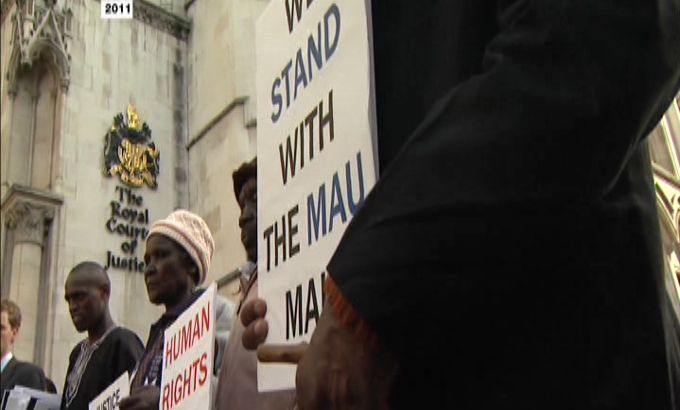UK and Kenyan torture victims discuss payouts
Kenyans tortured during Mau Mau rebellion in the 1950s negotiating for compensation with British government.

Lawyers for Kenyans tortured during a rebellion against colonial rule in the 1950s have said they are negotiating with the British government over a possible settlement.
An agreement to pay compensation could have broad implications for thousands of people who say they were abused by authorities in Britain’s former colonies.
Law firm Leigh Day, which represents three elderly Kenyans seeking compensation, confirmed on Monday that talks were taking place, but gave no other details “due to the nature of the negotiations”.
The case involves Kenyans who say they were beaten and sexually assaulted by officers acting for the British administration trying to suppress the Mau Mau rebellion, in which groups of Kenyans attacked British officials and white farmers who had settled in some of Kenya’s most fertile lands.
In 1952, then-Prime Minister Winston Churchill declared a state of emergency in the East African country and sent British and African soldiers to help colonial administrators capture the fighters and send them to detention camps.
In October last year, Britain’s High Court ruled that three Kenyans – Wambugu Wa Nyingi, Paulo Muoka Nzili and Jane Muthoni Mara – could pursue claims for compensation.
A fourth claimant, Susan Ngondi, has died since legal proceedings began.
The UK government had sought to have the case dismissed, saying it could not be held legally responsible for long-ago abuses.
It argued that the liabilities of the colonial administration passed to the Kenyan government when the country gained independence from Britain in 1963.
Foreign Office reaction
The British government launched an appeal against the October ruling, although it did not dispute “that each of the claimants in this case suffered torture and other ill-treatment at the hands of the colonial administration”.
While not commenting directly on the case, the Foreign Office said in a statement that “it is an enduring feature of our democracy that we are willing to learn from our history”.
Agreement of compensation could bring payouts to thousands of Kenyans who allege similar abuse, and also could prompt claims from other former British colonies.
At least 10,000 people died during the 1952-1960 Mau Mau uprising, with some sources giving far higher estimates.
Tens of thousands were detained, including US President Barack Obama’s grandfather.
The discovery of a vast archive of colonial-era documents which the Foreign Office had kept hidden for decades revealed the extent of the mistreatment.
It was only when the Kenya Human Rights Commission contacted the victims in 2006 that they realised they could take legal action.